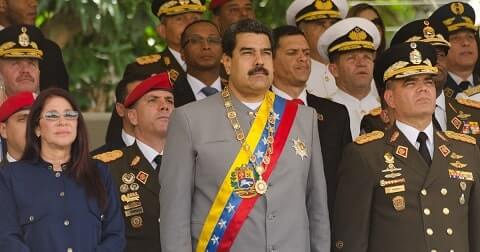
The Venezuelan government has officially announced the cessation of its national cryptocurrency, the Petro (PTR), effective January 15, 2024. Launched in 2018, the Petro was touted as an oil-backed digital currency aimed at circumventing U.S. sanctions and alleviating the economic pressures from the devaluation of the bolivar, Venezuela’s fiat currency. However, the Petro’s journey has been fraught with challenges, ultimately leading to its discontinuation.
The Petro’s Struggle for Adoption
The Petro, despite being a pioneering concept, struggled to achieve mass adoption. Introduced at a time when Bitcoin had already established a significant presence in Venezuela, the Petro was unable to displace or even complement the growing popularity of established cryptocurrencies. Its issuance was mandated by President Nicolas Maduro, yet it faced opposition from the parliament and was never declared legal tender. This lack of mandatory acceptance severely limited its domestic usage.
Legal and Operational Challenges
The Petro’s journey was marred by several legal and operational hurdles. Notable among them was the arrest of Joselit Ramirez Camacho, the head of Venezuela’s crypto regulator, on charges related to financial crimes in the national oil industry. Additionally, the Petro’s management faced allegations of involvement in international narcotics trading, which further tarnished its reputation and hindered its adoption.
Petro’s Limited Functionality and International Rejection
The Petro was never traded abroad, despite efforts to promote it to the Bolivarian Alliance for the Peoples of Our America. Domestically, its usage was restricted to certain state operations, such as the payment of taxes and traffic fines, but practical application remained limited. For example, fines levied in Petros could not be paid using the cryptocurrency itself, highlighting its operational limitations.
Closure and Transition to Bolivars
With the Petro’s closure, all crypto wallets on the Patria Platform, previously the sole trading platform for the Petro, will be shut down. The remaining Petros are being converted to bolivars, marking an end to Venezuela’s experiment with an oil-backed digital currency. This transition reflects the broader challenges of implementing national cryptocurrencies, particularly in economically and politically volatile environments.
Conclusion
The Petro’s story is a cautionary tale about the complexities of introducing a national cryptocurrency. It underscores the importance of legal credibility, broad-based acceptance, and practical functionality in the success of such digital currencies. The Petro’s cessation is a significant moment in the history of digital currencies, highlighting the challenges faced by state-backed cryptocurrencies in gaining legitimacy and adoption.
Image source: Shutterstock


